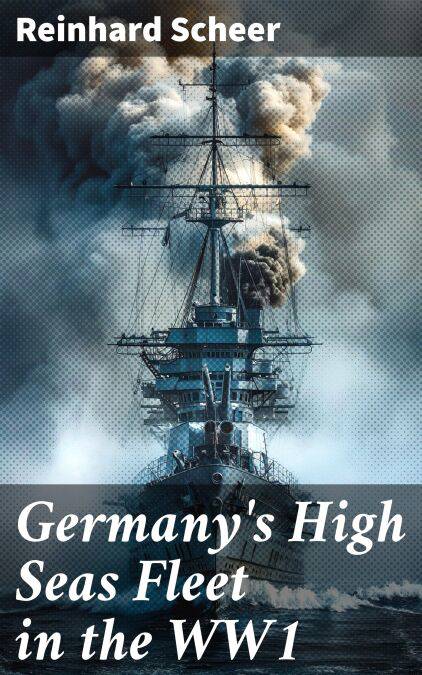
- Afhalen na 1 uur in een winkel met voorraad
- Gratis thuislevering in België vanaf € 30
- Ruim aanbod met 7 miljoen producten
- Afhalen na 1 uur in een winkel met voorraad
- Gratis thuislevering in België vanaf € 30
- Ruim aanbod met 7 miljoen producten
Zoeken
Germany's High Seas Fleet in the WW1 E-BOOK
Historical Account of Naval Warfare in the WWI
Reinhard Scheer
E-book | Engels
€ 1,99
+ 1 punten
Omschrijving
In "Germany's High Seas Fleet in the WW1," Reinhard Scheer presents a meticulous examination of the naval strategies, fleet composition, and pivotal battles that defined Germany's maritime efforts during World War I. Employing a rigorous analytical framework, Scheer interweaves naval technicalities with tactical discussions, offering readers an engaging narrative that explores the complexities of naval warfare. The book is set against the backdrop of a tumultuous era where maritime supremacy was contested, and Scheer's writing reflects the detail-oriented and analytical style of contemporary military historians, breaking new ground in our understanding of naval engagements such as the Battle of Jutland. Reinhard Scheer, an esteemed German naval officer and chief of the Imperial Navy during WW1, draws from both personal experience and extensive archival research to inform his perspectives. His first-hand knowledge of naval operations and his strategic foresight provide authenticity to his accounts. Scheer'Äôs dual role as both a participant and analyst of the events makes this work a crucial bridge between history and military theory, illuminating the motivations and decisions behind key naval actions. This book is essential reading for history enthusiasts, military scholars, and anyone interested in the naval dimensions of World War I. Scheer's authoritative voice and detailed recounting make it a compelling resource that not only sheds light on the operational aspects of the German fleet but also invites critical reflection on the broader implications of naval power in global conflicts.
Specificaties
Betrokkenen
- Auteur(s):
- Uitgeverij:
Inhoud
- Aantal bladzijden:
- 321
- Taal:
- Engels
Eigenschappen
- Productcode (EAN):
- 8596547785781
- Verschijningsdatum:
- 20/12/2023
- Uitvoering:
- E-book
- Beveiligd met:
- Digital watermarking
- Formaat:
- ePub

Alleen bij Standaard Boekhandel
+ 1 punten op je klantenkaart van Standaard Boekhandel
Beoordelingen
We publiceren alleen reviews die voldoen aan de voorwaarden voor reviews. Bekijk onze voorwaarden voor reviews.











